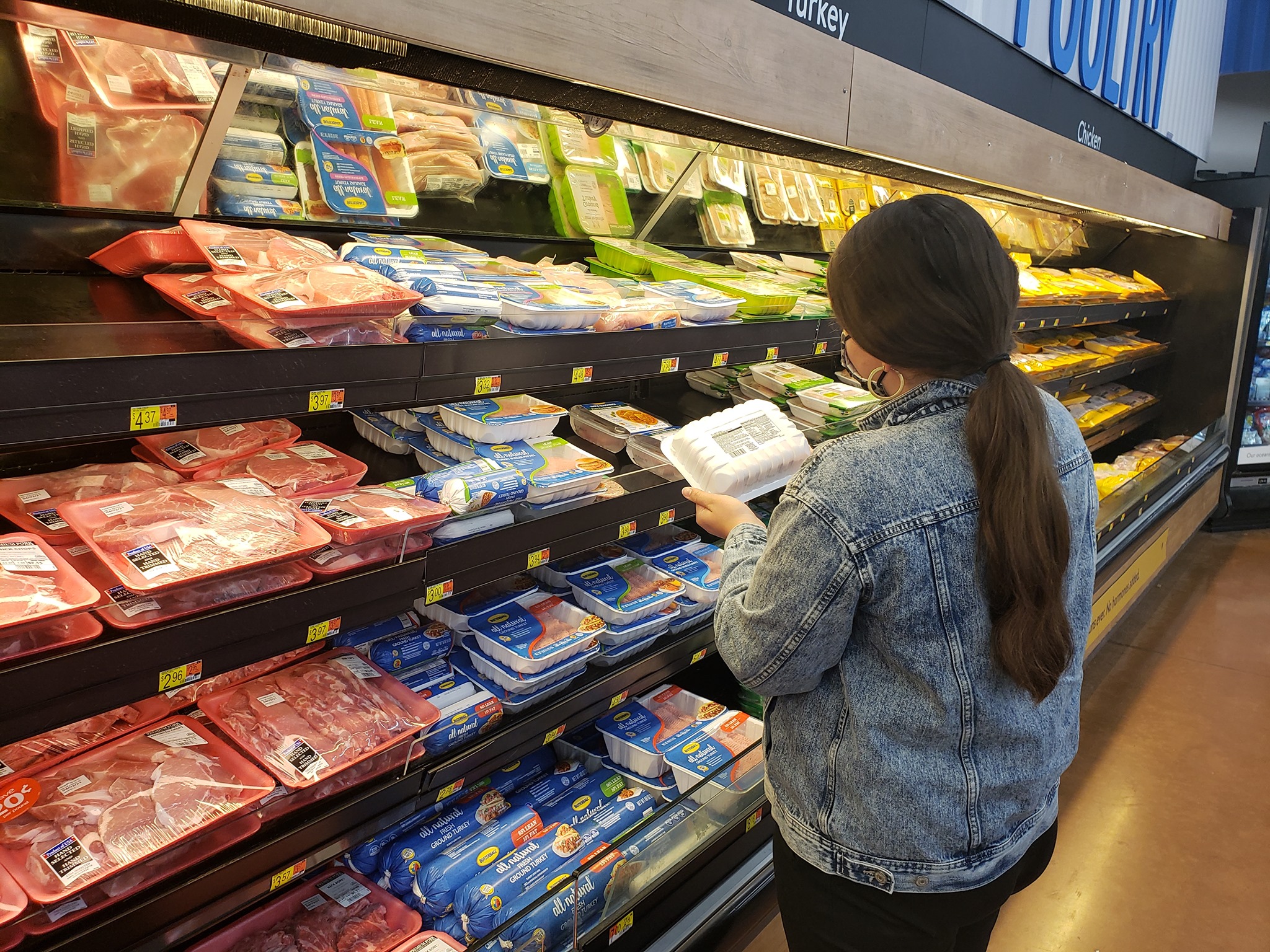Retail Markets
go.ncsu.edu/readext?251142
en Español / em Português
El inglés es el idioma de control de esta página. En la medida en que haya algún conflicto entre la traducción al inglés y la traducción, el inglés prevalece.
Al hacer clic en el enlace de traducción se activa un servicio de traducción gratuito para convertir la página al español. Al igual que con cualquier traducción por Internet, la conversión no es sensible al contexto y puede que no traduzca el texto en su significado original. NC State Extension no garantiza la exactitud del texto traducido. Por favor, tenga en cuenta que algunas aplicaciones y/o servicios pueden no funcionar como se espera cuando se traducen.
Português
Inglês é o idioma de controle desta página. Na medida que haja algum conflito entre o texto original em Inglês e a tradução, o Inglês prevalece.
Ao clicar no link de tradução, um serviço gratuito de tradução será ativado para converter a página para o Português. Como em qualquer tradução pela internet, a conversão não é sensivel ao contexto e pode não ocorrer a tradução para o significado orginal. O serviço de Extensão da Carolina do Norte (NC State Extension) não garante a exatidão do texto traduzido. Por favor, observe que algumas funções ou serviços podem não funcionar como esperado após a tradução.
English
English is the controlling language of this page. To the extent there is any conflict between the English text and the translation, English controls.
Clicking on the translation link activates a free translation service to convert the page to Spanish. As with any Internet translation, the conversion is not context-sensitive and may not translate the text to its original meaning. NC State Extension does not guarantee the accuracy of the translated text. Please note that some applications and/or services may not function as expected when translated.
Collapse ▲This page contains information of interest to farmers selling into retail markets, retailers and other buyers sourcing locally produced food, and service-providers providing technical assistance to both producers and buyers. Resources are organized by roles involved in retail markets.

Photo by Brunswick County Cooperative Extension Center.
On This Page
| Producers |
| Retailers/Buyers |
| Service Providers |
| Communities |
| Producers & Retailers/Buyers |
:Producers
- Tips for Marketing Fresh Produce to Retail Grocers: Using PLU and UPC Codes: PLU and UPC codes are two widely used tracking mechanisms that help retailers efficiently ring produce into the register in the checkout lane, track sales, control inventory, and market products. Being knowledgeable about these labels in advance of approaching a retailer shows a grower’s awareness of the retailer’s industry. This fact sheet contains information adapted from the Produce Marketing Association.
- NC Growing Together: Explore collections of resources for producers, supply chain intermediaries, local/regional food business development, and educators, community and nonprofits.
- NC Department of Agriculture & Consumer Services: NCDA&CS has been partnering with buyers and county Cooperative Extension offices to network farmers with retail grocers and foodservice distributors. Check the NCDA&CS website for future opportunities, or if you are eligible, become a member of the Got to be NC program to receive periodic updates on NCDA&CS events.
:Retailers/Buyers
- Putting Local on the Menu: Tools and Strategies for Increasing the Utilization of Locally Raised Food in Restaurants and Food Service: The SCALE project is a two-part effort that first, examines how some food enterprises are making local buying work, and secondly, develops a tool that more accurately determines the real cost difference when buying local food.
- NC Growing Together: Explore collections of resources for producers, supply chain intermediaries, local/regional food business development, and educators, community and nonprofits.
- Standards and Expectations of North Carolina Food Buyers: This report provides the results of the research study Local Food Harvest Handling Guide, a project conducted by the Local Food Research Center of ASAP with partners from around the state. The purpose of the project was to identify the communication and infrastructure barriers that prevent local specialty crop producers from meeting the standards and expectations of NC food buyers.
:Service Providers
- Scaling-up Connections between Regional Ohio Specialty Crop Producers and Local Markets: Distribution as the Missing Link: Ohio State University report exploring “the opportunities for scaling up distribution of local fruits and vegetables to retail outlets in Ohio by using conventional distribution methods.”
:Communities
- Healthy Food Access Portal: This website provides resources specifically for communities to increase food access by working with retail strategies. A good source of research updates, grant/funding and policy information
:Producers & Retailers/Buyers
- Wholesale Local Food Guide: A farm-to-business trade directory for Western NC and the Southern Appalachian Mountains.
- NC Growing Together Project: NCGT is a multi-partner project led by the Center for Environmental Farming Systems. The goal of the project is to bring more locally-produced foods into mainstream markets, strengthening the economics of small to mid-size farm and fishing operations and their communities. The website provides research and resources for producers as well as retail and food service buyers.
- Selling Fluid Milk into Grocery Stores through Direct Store Delivery: This Extension publication will help you start selling fluid milk directly to grocery stores.
- How to Sell Shell Eggs into Grocery Stores through Direct Store Delivery: This Extension publication will help you get started marketing to grocery stores through direct store delivery (DSD).
- How to Sell Pastured Meat Products to Grocery Stores via Direct Store Delivery: This Extension publication will help you get started on connecting to community grocery stores, co-ops, and other retail stores through DSD.
- Tips for Marketing Fresh Produce to Retail Grocers: Using PLU and UPC Codes: Being knowledgeable about PLU and UPC labels in advance of approaching a retailer shows a grower’s awareness of the retailer’s industry.
This fact sheet contains information adapted from the Produce Marketing Association (Produce Marketing Association 2013).





